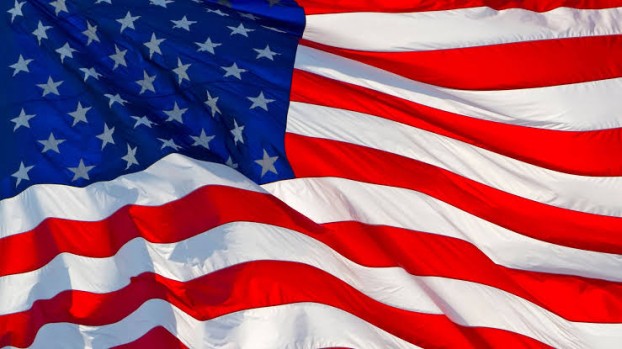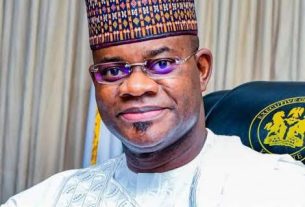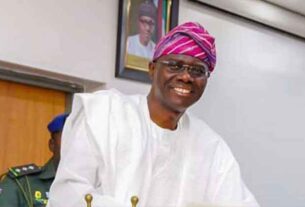By Magnus Onyibe
As prominent figures like Elon Musk, who is on the path to becoming the world’s first trillionaire, advocate for former President Donald Trump, and musical icons like Beyoncé, Taylor Swift, Eminem, and Bruce Springsteen lend their support to Vice President Kamala Harris, the upcoming November 5 presidential election is being tightly contested, with the race said to be in a dead heat as both candidates are tied in opinion polls conducted by CNN.
So, by and large, who becomes the next occupant of the White House, from January 20, 2025, is being defined by those in the commanding heights of hardcore business and show business as detailed above.
That is why the American presidential race remains a source of fascination, a maze, and even an enigma to those of us looking in from the outside due to its constant drama featuring unique political twists and turns arising from gaffes and other idiosyncracies by the contestants or their allies. For example, as the anniversary of the October 7 Hamas attack on Israel approached, threats were made against synagogues in New York City. Earlier this year, there were bomb threats aimed at schools in Springfield, Ohio, following warnings from Trump about Haitian immigrants allegedly harming pets in the area. Just as a misspeak about other sensitive issues by leaders from both sides of the campaigns be it Trump’s or Harris’s supporters results in the rise and fall of the needle in their popularity barometer.
Notably, there have been two assassination attempts on the Republican candidate, Donald Trump. The first occurred in Butler, Pennsylvania, where he was shot at and narrowly escaped, with a bullet grazing his earlobe. The second was thwarted when a Secret Service agent intercepted an individual hiding in the bushes near Trump’s Palm Beach golf course during a game.
Also in a manner astonishing to most observers, mid-way through the race, the incumbent president Joe Biden withdrew from pursuing his mandatory second-term opportunity and yielded the ticket to Vice President Harris who did not contest for the ticket through party primaries as is customary.
That is not all the intrigues.
While the Democratic National Committee (DNC) linked the school bomb threats in schools in the state of Ohio to Trump’s statements about Haitian immigrants, they have failed to admit how their portrayal of Trump as a threat to democracy might have contributed to the assassination attempts on his life. This reveals the double standards often present in politics, both in established democracies like the U.S. and in developing ones in the African continent like Nigeria, South Africa, Ghana, Kenya, and Egypt where pre and post-election violence often define civic exercise. In comparison, the unwholesome political situation unfolding around the world appears even more dire in Venezuela and Haiti, countries near the U.S. that are acclaimed as the global beacon of democracy; but where democratic values and institutions seem to have been greatly eroded in the course of the campaigns for the 2024 presidential elections.
In Haiti for instance, a weakened presidency has given way to militia-led governance characterized by brutality. Meanwhile, in Venezuela, the sitting president claimed victory in a contested election without disclosing the results. When contrasted with the political challenges in the U.S., these examples illustrate the broader decline in democratic standards, even in a country as influential as the U.S.which prides itself as the bastion of democracy.
It’s worth considering that the current threats to democracy might not be solely linked to the DNC’s narrative that Trump’s refusal to accept the 2020 election results, which led to the Capitol Hill incident during the certification process, poses a danger. Instead, the real danger to democracy could be seen in the ruling party’s actions aimed at excluding Trump and Robert Kennedy Jr. (who left the DNC to run as an independent) from the ballot in the 2024 election—a strategy some describe as a “kitchen sink” approach.
It’s notable that, despite numerous legal challenges and even surviving an assassination attempt, Mr. Trump and the Republican National Committee (RNC) are neck-and-neck with the Democratic National Committee (DNC) and its candidate, Vice President Kamala Harris, as reflected in the latest CNN polls, which tend to be biased in favor of the DNC and Harris. This situation contrasts with the stance of the Washington Post and Los Angeles Times, both of which, for the first time in a long time, have chosen not to endorse any candidate, citing a desire to maintain independence and allow readers to make their own choices. In the case of Washington, it is a decision that has had a backlash as critics attribute the none endorsement of either of the candidates to the owner, Jeff Bezos’s inclination not to take a gamble that would have negative consequences on him and his business empire including the e-commerce giant Amazon.
Amazingly, such prependal politics that were thought in the past to be only in the precinct of third-world politics are manifesting in the U.S. thought to be the world’s bastion of democracy.
Notably, this is the first time since 1986 that the Washington Post has refrained from endorsing a candidate, the last instance being when it withheld support for then-presidential candidate Jimmy Carter. The publication’s explanation that its decision was aimed at preserving readers’ autonomy in choosing their candidate, has not vitiated the angst from its critics.
It’s striking that while President Biden and Vice President Harris emphasize the narrative that Trump is a threat to democracy—a rhetoric some believe is fueling violence and attempts on Trump’s life—Trump is simultaneously being blamed for his anti-abortion stance. He is alleged to have influenced the Supreme Court’s decision to overturn Roe v. Wade, a landmark ruling that had made abortion legal nationwide, and Trump has made the case that the abortion decision should be determined by individual states, not a national policy.
Somehow, the issue of reproductive rights has gained traction for Harris’s campaign, as many American women believe that the government should not decide the right to have an abortion. However, if it is okay for the government to prosecute those who assist others in attempting suicide—typically under Section 2 of the Suicide Act 1961, requiring prosecution approval by the Director of Public Prosecutions—why shouldn’t the government have an interest in cases involving pregnant individuals ending the lives of unborn children through abortion?
Moreover, it’s intriguing that while the government heavily regulates euthanasia, with involuntary euthanasia being illegal across all 50 U.S. states, the protection of unborn life seems less prioritized. Therefore, it seems inconsistent to me, as it doesn’t appear logically sound. Nonetheless, this point of making abortion at a point in time illegal is one that the DNC candidate has emphasized by making it a selling point and leveraging it as a political advantage, given its popularity among Democrats and women across the political divide generally.
However, the matter of reproductive rights is complex and complicated by the presence of a large Catholic population in the U.S., whose doctrine opposes abortion, alongside a significant evangelical base.
Remarkably, both groups generally are not supportive of the LGBTQ policies that Kamala Harris and the DNC promote. Thus, it is not surprising that Vice President Harris, the second female candidate after Senator Hillary Clinton to run for president with a major party, faces significant challenges in her bid to return to the White House as the country’s number one citizen.
In addition to the aforementioned headwinds against Harris’s presidential bid, what baffles me the most is that despite the intense pressure Mr. Trump has faced from the ruling party—including being impeached by the House of Representatives (though not convicted by the Senate) and the numerous legal battles he has been slammed with since announcing his candidacy last year—he remains the candidate to beat.
In discussions with friends around the world, who are engaged in various fields, the general expectation was that former President Trump would be imprisoned and thus ineligible for the ballot, let alone be a viable contender in an election now just days away. Yet, defying the odds, Trump, known for his resilience, has emerged as a front-runner, even though media outlets and pollsters favoring Vice President Harris often present the race as being on Knive’s edge or even suggest that Harris leads in the opinion polls. It feels reminiscent of 2016 when, as Trump’s victory over Hillary Clinton became increasingly likely, the DNC rallied high-profile figures like former President Barack Obama and Michelle Obama to campaign on Clinton’s behalf. Despite their efforts, Senator Clinton ultimately lost the election to Trump.
Currently, once again, influential figures like the Obamas, and Clintons, and popular artists such as Beyoncé, Taylor Swift, Bruce Springsteen, and Eminem amongst others are actively campaigning for Kamala Harris. In contrast, Trump’s growing support comes without the backing of former presidents of the republican stock such as former president George Bush Jnr and ex-vice presidents Dick Cheney and Mike Pence, or major music stars who have not displayed support openly for Trump, yet has remained the candidate to beat.
However, his popularity is bolstered by tech billionaire Elon Musk, who has stirred attention by offering through his Super Pac $1 million to registered voters in seven swing states willing to sign a letter protesting government restrictions on free speech.
It is worthy to underscore the fact that Trump’s campaign focuses on both domestic and international issues. He emphasizes “kitchen table” concerns like the rising cost of living, asserting that Americans had better economic conditions during his first term (2016-2020) than they are currently under the watch of President Biden and Vice President Harris.
On foreign policy, Trump highlights that, under his administration, Russia’s President Vladimir Putin did not engage in warfare with Ukraine—a conflict that began during the Obama administration with the 2014 annexation of Crimea and resumed under Joe Biden’s presidency, pitching NATO against Russia with a potential to degenerate to a global conflict as ally nations to Russia like North Korea are taking side with Russia as evidenced by North Korean soldiers being trained in Russia. Furthermore, commentators suggest that President Putin tends to act when he perceives the U.S. leadership as weak.
A similar narrative surrounds the absence of conflict between Israel and Hamas during Trump’s presidency. The peace in the Middle East during Trump’s tenure is credited to his role in the Abraham Accords agreement that had helped foster peace in the Middle East and was underpinned by the origin of the three main religions in the region – Judaism, Islam, and Christianity traced to Abraham. These agreements eased tensions between Arabs and Jews, even leading to unprecedented cooperation between Israeli and Arab airlines. However, about a year ago, on October 7, under the watch of Biden and Harris, Hamas launched a deadly attack on Israel, leading to a large-scale Israeli counteroffensive in Gaza, resulting in over 40,000 Palestinian casualties and widespread destruction of infrastructure in Gaza.
Consequently, the U.S. and the rest of the world have been struggling to prevent further degeneration of the raging conflict in the Middle East region.
Despite these advantages for the 45th president, Donald J. Trump’s potential comeback as the 47th president, Democratic strategist James Carville remains confident and in a recent New York Times piece, he expressed belief that Kamala Harris would emerge victorious in the November 5 election.
Similarly, CNN has been showing bias towards the DNC and Kamala Harris, particularly through programs like Fareed Zakaria’s GPS. In an episode on October 20, Zakaria appealed to Black voters to support Harris by emphasizing the high educational attainment of Nigerian Americans, an attempt to attract African American support, especially the men which Harris has struggled to secure. Recent polls show Harris has 10% less support among Black men than Joe Biden had at the same point in his campaign four years ago.
This has prompted frustration from former President Barack and ex-First Lady Michelle Obama, who question why Black voters are not rallying behind Kamala Harris but instead gravitate towards Trump. Fareed Zakaria in his program highlighted the fact that Nigerians in the diaspora are known for their high levels of education, both in the U.S. and Europe, with many holding prominent roles, such as Deputy Treasury Secretary Wally Adeyemo in the U.S. and Kemi Badenoch in the UK who is vying for the leadership of the Tory.
The truth is that historically, many Nigerians intentionally traveled abroad to seek education rather than migrating for economic reasons—a shift seen today with the “Japa” phenomenon, where many leave Nigeria seeking better opportunities amid economic hardship at home
This is the reason Nigerians in the diaspora are highly educated.
Now, it is worth noting that no country wants to admit individuals who are immigrants without useful skills who might become a societal burden, which is why Trump has campaigned against admitting unskilled immigrants. However, he supports immigration for skilled workers, consistent with America’s identity as a nation built by immigrants. Mr. Trump himself traces his roots to Scotland, President Biden to Ireland, and Vice President Kamala Harris could reference her Jamaican heritage. Yet, based on records she has often emphasized her Indian heritage over her Jamaican background, which some Black voters see as distancing herself from a Black identity and contributing to their disconnect with her campaign.
So, it remains uncertain whether the combined efforts of influential figures like the Obamas, Beyoncé, Oprah Winfrey, and other Black celebrities campaigning for Kamala Harris will sway strong support for Trump among Black voters. Regarding the growing anti-immigration sentiment worldwide, as observed in countries like the UK, France, and Germany, it’s important to recall Nigeria’s expulsion of Ghanaians in the mid-1980s under General Muhammadu Buhari. During that time, both unskilled and skilled Ghanaian workers, such as teachers and doctors, were sent back to Ghana, leading to the emergence of the term “Ghana-Must-Go” bag.
More recently, South Africa has shown xenophobic tendencies by expelling other Africans, including Nigerians, accusing them of taking jobs from them and committing crimes. Ghanaians have also restricted Nigerian businesses in their clime, and the UAE, especially Dubai, has expelled many Africans, including Nigerians, for similar reasons. This aligns with and justifies Trump’s stance on preventing illegal immigrants from entering the U.S. and highlighting the reality that the issue of blocking illegal immigration has become a global phenomenon.
In light of the above, efforts to attract African and Nigerian-American voters to support the DNC and Kamala Harris by criticizing Trump’s anti-illegal immigration stance, as Fareed Zakaria attempted on his show, might not significantly benefit Harris. Although current polls conducted by CNN indicate that she and Trump are tied at 47%, despite the monumental obstacles placed on the path to the White House for Trump. After all, is said and done, some potential voters do not display their political leaning publicly as they often want to be seen as politically correct and keep their political inclinations to themselves. It is such voters that may swing the election in favor of Trump.
Kamala Harris’s difficulty in securing Black votes is not without cause. Conversations with Black American men reveal lingering resentment over her time as California’s Attorney General, where she was seen as disproportionately harsh toward Black people. Many believe this harshness may stem from unresolved personal issues with her Jamaican father, who left her Indian mother to raise her and her sister alone.
As a result, some Black Americans remember her as being unsympathetic before her rise in national politics as a senator and now as the DNC’s presidential candidate. Additionally, many Black men are drawn to Trump’s blunt and direct manner, feeling that he would be a more authentic leader than Harris, whom they view as shifting her stance based on political convenience.
Without a doubt, the U.S. presidential election holds global significance due to the country’s status as the world’s most powerful nation and largest economy. But it is also to its outcome degenerate into violence as was the case on January 6, 2020.
I find former President Donald Trump, the RNC’s 2024 candidate, appealing due to his straightforwardness—something not often seen in politicians. Like many Americans, I am less familiar with Vice President Kamala Harris, making it difficult to endorse her. This lack of familiarity is also why many Black men view voting for her as a leap into uncertainty.
As a scholar in the international relations space, I have closely followed global politics and the U.S. elections. My observations suggest that Trump is not a conventional politician, having only entered the political arena about a decade ago. During his presidency from 2016 to 2020, he approached governance as an outsider, challenging the traditional “business as usual” mindset that has characterized U.S. politics since its founding in 1776. This divergence from the norm has led to pushback from traditionalists who see him as a threat to democracy due to his unconventional style.
A similar resistance faced the 40th U.S. President, Ronald Reagan, though he had prior political experience as a two-term Governor of California before becoming president in 1981 and serving until 1989. Likewise, many U.S. allies, particularly NATO members, appear to favor a Harris victory, preferring the more traditional diplomatic approach seen during Joe Biden’s administration than Trump that would make them take more responsibility for the protection of Europe against aggressors such as Russia, etc.
It may be recalled that during Trump’s presidency from 2016 to 2020, he pushed NATO members to fulfill their financial commitments, easing a burden that had largely been carried by the U.S. The former NATO Secretary-General, Jens Stoltenberg, acknowledged that the alliance’s funding improved due to Trump’s pressure. Understandably, some NATO members and global leaders might feel uneasy about the possibility of Trump returning to the White House in January 2025.
Expectedly, the world is paying close attention to the election, as whoever becomes the U.S. president will hold considerable global influence, almost serving as a de facto leader of the world. That is why the issue of misinformation and disinformation threatening the integrity of the exercise become so concerning that U.S. authorities recently announced a $10,000 reward for tips on individuals spreading false information that could impact the November 5 presidential election.
Having obtained our presidential system of government franchise from the U.S., there are a couple of lessons that as a country we can learn from the 2024 presidential election campaign in the U.S.
The world’s richest man Elon Musk openly campaigned for and massively funded Trump’s campaign as other billionaires equally did Harris’s campaign without fear.
That is because between the two candidates, whoever triumphs at the polls, none of those who funded the candidates will face reprisal actions or be victimized. After all, they are protected by strong laws and institutions against strong men.
In Nigeria, can Aliko Dangote, Mike Adenuga, or Allen Onyema fund the campaign of a presidential candidate openly and his business continue to thrive if his candidate loses?
Dear readers your guess is as good as mine, but l look forward to that day.
Circling back to the ongoing keenly contested and highly consequential U.S. election, ultimately, as the mail-in voting has commenced, it will be up to American voters to choose their next president on November 5, despite the challenges posed by misinformation. It is hoped that the efforts that have been made to guarantee the sanctity of the electioneering system will help ensure a fair and secure voting process.
Be that as it may, it is rather dismaying that the impending 2024 presidential election does not inspire much confidence as it is currently looking like a typical electioneering process hitherto endemic to Africa because the ballot drop boxes in some states that are already stuffed with votes due to early voting are being set on fire by nefarious ambassadors, reminiscent of how ballot snatching, burning and stuffing during elections in Africa define an otherwise civic exercise.
During the last presidential election circle in the U.S.,(2020), massive violence trailed the allegation of fraud by former President Donald Trump who was then the incumbent president against the declared winner, Joe Biden.
Before then, in 2016, Senator Hillary Clinton had protested her loss to Mr.Trump by alleging election fraud.
But her protest did not trigger the sort of violence that ensued in January 2020 setting off a firestorm of sorts in Capitol Hill, the seat of power for the legislators/ Congress in the US leading to the death of a protester, injuring of policemen, and resulting in the death of a few after the incident and extensive damage to the Capitol Hill infrastructure. The presidential contest between George Bush Jnr and former Vice President Al Gore in 2000 was also contested in court at the Supreme Court level owing to alleged fraud in ballot counting in Florida where Jeb Bush, brother to George Bush Jnr was governor. So, elections in the U.S. have become progressively fractious and violent in a manner that mimics the situation in nascent democracies in Africa.
As the conventional wisdom goes, the morning foretells the night, so it is ominous, and people are apprehensive if the November 5 polls might end up in a fiasco as was the case in 2020 or have a happy ending with the 45th president returning to the White House as the president.








